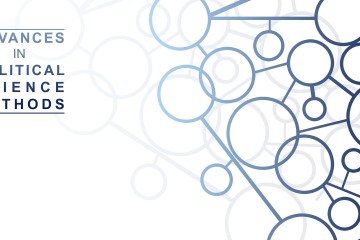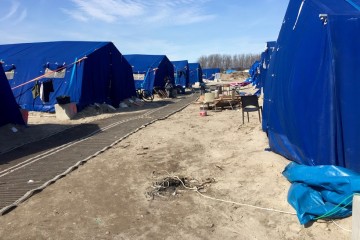
The Labour Case for Vote Leave
‘I will be voting to leave the European Union’. It is a sentence which almost always attracts gasps of horror from my fellow students and dons in Oxford, one of the most pro-EU cities in Britain. But, polls show that at least 40% of the British public, many of whom voted Labour in the last general election, agree with me. My decision to vote ‘Leave’ is based on my belief in democracy, socialism, and a political economy which protects the living standards of the British working class. As a Labour member since I was eighteen, I will be voting to leave the EU not in spite of the principles which led me to the Labour Party but because of them. …

Saving devolution from itself: Building regional democracy in the North of England
Devolution. City Deals. Northern Powerhouse. What does this even mean to the average person on the street? Devolution probably reminds most people of Charles Darwin. If not, then it’s something to do with Scotland. City Deals just sound like business as usual. The Northern Powerhouse may be a funk band. If somehow all these big words are about the future of Northern England’s society and economy, about its transport and education and health system, about power and control vis-à-vis Whitehall bureaucracy and the whims of national government, about jobs and infrastructure and other areas where we are spending and raise tax money, then we should be talking about something else. We should be talking about regional democracy – a mechanism …

How Brexit might affect EU audio-visual media services policy-making
This brief will discuss the current issues affecting UK stakeholders in the cross-border audio-visual services sector. It is written in light of the replies to the public consultation on Directive 2010/13/EU on Audio-visual Media Services (AVMSD), the Commission’s Regulatory Fitness (REFIT) exercise, the public consultation on the EU Satellite and Cable Directive, national consultations and a possible exit of the UK from the EU. The paper also draws on anonymised responses to an online survey run by the author. The paper’s findings are considered in the context of current market trends: the increase in high definition channels, decrease in television watching (e.g. DTT, cable, satellite, IPTV) particularly amongst the younger populations, the move towards on-line and on-demand services and changes in content …

Impeaching Brazil’s president: A tragedy foretold
The historical defeat of Dilma Rousseff on 17 April, when more than two-thirds of Brazil’s lower House of Congress voted to oust the country’s first female president, is not the end of the debate about whether she committed a crime that would constitutionally justify her impeachment. The opposition claims that the president, elected with more than fifty-four million votes, used accounting tricks to artificially lower the government’s budget deficit. Her supporters argue that other Brazilian presidents have used the same strategy before. The final word on the impeachment motion will be given shortly by the Senate, but at the end of the day, many Brazilians are still not convinced that Ms Rousseff’s impeachment is based on solid constitutional grounds. Did …

What Big Data can teach political scientists
Big Data is now a buzzword in the political science field. Some might call this hype. Others see unlocking the power of “Big Data” as the most significant transformation in research this century. In the world of research, Big Data seems to be living up to its promise. And the results include a wave of new and inspiring projects. What is Big Data? Big data is not simply research that uses a large set of observations. It might be thought of as re-imagining large-n inquiries, dealing with hundreds of thousands, and, in some cases, even millions of observations. Big Data means giant N. But it is more than a question of quantity. In their well-known Ted Talk, Erez Lieberman …

To be alive is to have hope
I traveled to the Calais migrant and refugee camp from March 14 to 16, together with a humanitarian student group from Brasenose College that collected donations and supplies to aid local NGOs with clothing and basic medical supplies. This article is based on my impressions of the camp and interviews with the migrants, refugees and NGO workers.

Democracy matters, but how?
In an unheralded committee room at the House of Lords on Wednesday a group of politicians from across the political spectrum came together with the participants and organisers of two recent pilot Citizens’ Assemblies on constitutional reform. It was heartening to hear the genuine appetite for new approaches to involving members of the public in politics. Politicians from the Conservatives, Greens, Labour, Liberal Democrats, Plaid Cymru, SNP and UKIP all sang the praises of the Citizens’ Assemblies and called for more public participation in politics. Nevertheless, belying this consensus was a little less agreement than apparent at first sight. The two citizens’ assemblies – Assembly North in Sheffield and Assembly South in Southampton – provided a chance for a small …

Brazil’s delicate foundations are falling apart like a house of cards
A cornered government, a legislative short of legitimacy, a contaminated judiciary and polarised protesters put Brazilian institutional balance to the test. Immoral deals, Machiavellian manoeuvres and outright dishonesty. No wonder comparisons between Brazilian politics and the American TV show House of Cards are tempting and widespread. Even Netflix made the connection to promote the release of its fourth series in Brazil. This clever marketing initiative prompted Maurício Santoro, a political scientist, to joke on Twitter that “Netflix is the only institution enjoying the trust and esteem of Brazilians these days.” But Brazil’s plight is not fiction, and the quip accompanies a concerning realisation. For some time, even in the face of turmoil and economic meltdown, it was possible to believe …









